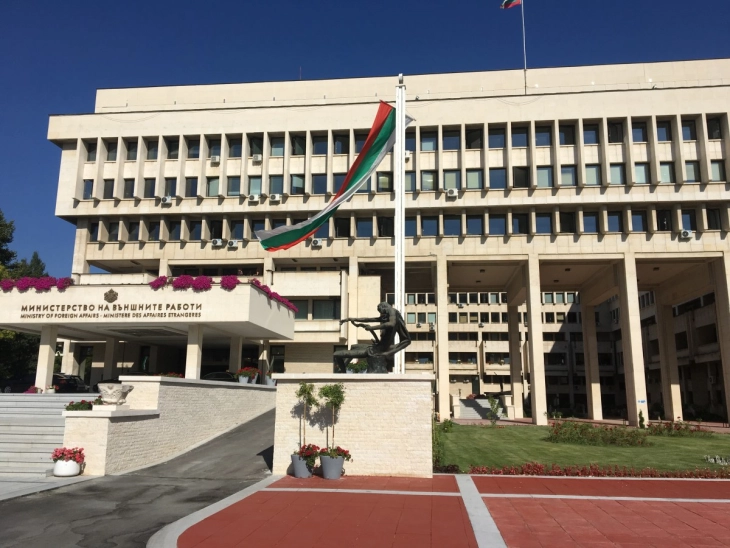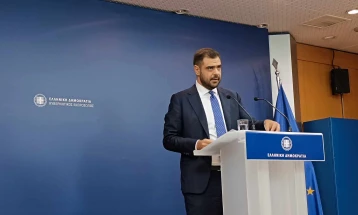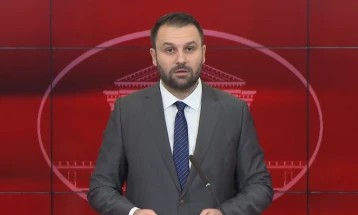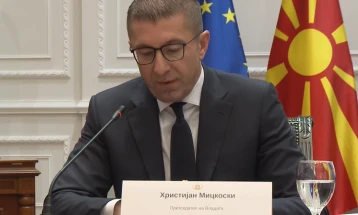Bulgarian MFA: Issue of Bulgarians' rights not a bilateral dispute but one impacting fundamental European values and standards
- The Bulgarian Ministry of Foreign Affairs expressed late Wednesday its disappointment and condemned the statements by Prime Minister Hristijan Mickoski "that not only distort reality but also uindermine efforts to build goodneighborly relations and European integration".

Skopje, 12 February 2025 (MIA) - The Bulgarian Ministry of Foreign Affairs expressed late Wednesday its disappointment and condemned the statements by Prime Minister Hristijan Mickoski "that not only distort reality but also uindermine efforts to build goodneighborly relations and European integration".
"We would like to stress that the issue of the rights of Bulgarians in North Macedonia is not a bilateral dispute between our two countries, but one that impacts fundamental European values and standards. Progress in the process of North Macedonia's European integration is possible only through complete and comprehensive implementation of the European consensus, agreed and adopted by the EU Council in 2022, with the constitutional amendments being an important element in this. Respect of minority rights and ensuring their equality are fundamental principles of the European Union. In this context, North Macedonia, as an EU candidate-country, has the responsibility of aligning its legislation and practice with these principles," the Bulgarian MFA said in a press release.
It urges the authorities in North Macedonia to refrain from rhetoric that stimulates divisions and hatred, and instead focus on meeting the EU membership criteria, including protection of the rights of all ethnic communities in the country.
"It is only through sincere dialogue and mutual respect that we can achieve sustainable development and prosperity for our people in a united Europe," says the MFA.
Earlier today, PM Mickoski asked in Parliament why the 700-800 Bulgarians who had identified as native Bulgarian speakers in the latest census should be included in the Constitution whereas Albania was not required to do the same despite the 8,000 Bulgarians counted in Albania's latest census.
"In the 2011 census in Albania, there were 5,500 Macedonians. Now there are about 2,300. You said 2,000, but I will correct you — there are 2,300. And there are around 8,000 Bulgarians now while in the 2011 census, there were zero Bulgarians in Albania," Mickoski said.
"We care about the Macedonian minority everywhere," he said. "The real question is why should Macedonia include the 700-800 Bulgarians who declared that their mother tongue is Bulgarian in our Constitution while the same condition does not apply to Albania, for them to include these 8,000 in their Constitution? That's the key question. I would like us to talk like citizens, Macedonians and others, not only Macedonians, but also Albanians, Turks, Bosniaks, Serbs, Roma and Vlachs. Let's see why we have let this happen. That's the key question."
MIA file photo







